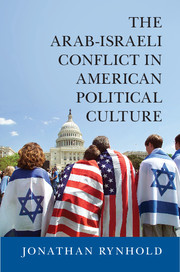Introduction
Published online by Cambridge University Press: 05 February 2015
Summary
The United States … has a special relationship with Israel … really comparable only to which it has with Britain.
—John F. KennedyThe United States has a special relationship with Israel. A defining feature of the special relationship is that support for Israel goes beyond an empirical calculation of U.S. interests. This is because the relationship is grounded on deep cultural foundations that predate the mass immigration of Jews to the United States. While this special relationship continues to endure; beneath the surface those foundations are shifting in conflicting directions. For in the first decade of the twenty-first century, a paradox has emerged in the way America relates to Israel. On the one hand, Americans identify with Israel and sympathy for Israel is widespread, surging to new heights. On the other hand, Americans are increasingly divided about the Arab-Israeli conflict, and this division increasingly aligns with the major political, ideological, and religious divides in America.
Thus, Republicans and conservatives have become far more supportive of Israel than liberals and Democrats. At the same time, the most vociferous evangelical supporters of Israel oppose Israeli concessions to the Palestinians, while mainline church activists have been pushing divestment from Israel in order to pressure Israel into making concessions. In the heartland of pro-Israel sentiment, the organized American Jewish community has become increasingly divided over the peace process, as exemplified by the formation of the “pro-Israel, pro-peace” lobby J Street, as an alternative to the established pro-Israel lobbying organization the American Israel Public Affairs Committee (AIPAC).
- Type
- Chapter
- Information
- Publisher: Cambridge University PressPrint publication year: 2015

